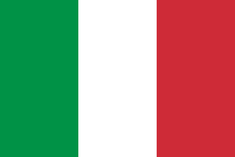Featured Quizzes
User Quizzes
Create Quiz
Data and Charts
Badges and Games
About JetPunk
JetPunk Shop
Dark Mode

Random Italian Words
Can you translate these random Italian words into English?
All the answers are a single word
If multiple answers fit, guess the most common
Rate:
Featured Quiz
Last updated: January 8, 2020
You have not attempted this quiz yet.
More quiz info >>
| First submitted | October 2, 2014 |
| Times taken | 60,055 |
| Average score | 66.7% |
| Rating | 4.35 |
4:00
Enter answer here
0
/ 24 guessed
Time Used
00:00
Best Time
00:00
The quiz is paused. You have remaining.
Scoring
You scored / = %
This beats or equals
% of test takers
also scored 100%
The average score is
Your high score is
Your fastest time is
Keep scrolling down for answers and more stats ...
|
|
|
New and Popular
Save Your Progress
Copyright H Brothers Inc, 2008–2024
Contact Us | Go To Top | View Mobile Site

But "Venti" means "winds" too, not only the number.
I'd accept "kid" for bambino
But I understand that such a usage can be misleading, and I agree that all other options should be accepted too.